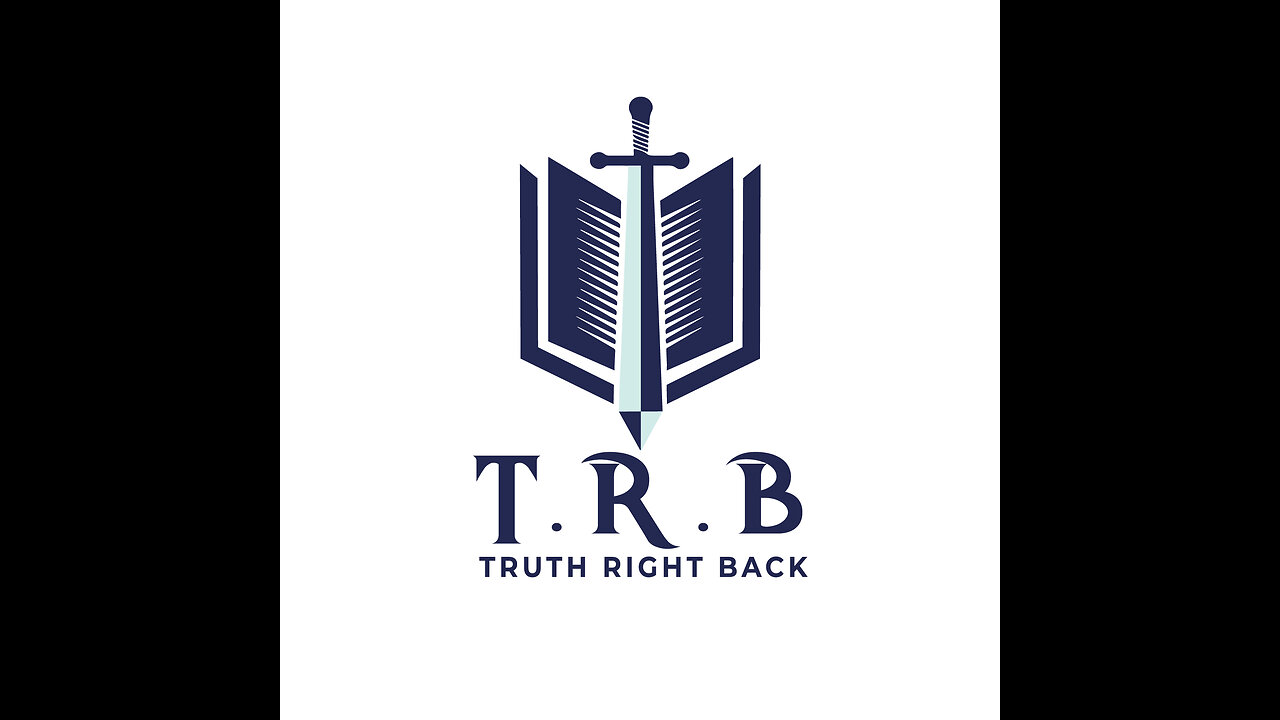Premium Only Content

Reading of the 1560 Geneva Bible - Day 228 of 366 (Jonah 4; Micah 1-6) Season 2
Reading of the 1560 Geneva Bible - Day 228 of 366 (Jonah 4; Micah 1-6) Season 2 - "A Tale of Two Prophets: Embracing Mercy and Justice"
In tonight's reading, we explore the profound lessons found in the Book of Jonah and the Book of Micah, two pivotal texts that reveal the heart of God towards mercy and justice.
In the fourth chapter of Jonah, the story takes a surprising turn after the great city of Nineveh heeds God’s warning and repents. Rather than rejoicing over their change of heart, Jonah is filled with anger and despair. He resents God’s mercy towards the Ninevites, fearing that his own prophetic failures will be seen in their change. Jonah retreats outside the city, seeking a place to watch what will happen next. God, wanting to teach Jonah a lesson about compassion, causes a plant to grow and provide shade for him, offering temporary relief from the harsh sun. However, the next day, God sends a worm to wither the plant, leaving Jonah distressed. Through this experience, God gently confronts Jonah, asking him if he has a right to be angry about the plant’s demise, while showing concern for the many people of Nineveh. This dialogue reveals Jonah's struggle with understanding God’s boundless grace and the value of every life, leaving the reader to ponder the complexities of divine mercy.
Meanwhile, the chapters of Micah unfold a dramatic prophecy that speaks to both the judgment and hope tied to the people of Israel. In the first chapter, Micah delivers a vivid portrayal of God’s judgment on Israel’s idolatry and injustices, emphasizing the impending doom that will befall cities like Samaria and Jerusalem. As he speaks, he mourns over the spiritual decay and loss of integrity among the people.
In the second chapter, Micah condemns those who scheme and exploit their neighbors, highlighting the social injustices that run rampant. He calls for accountability, assuring the oppressed that God will gather a remnant and bring them back to their rightful place.
The third chapter intensifies this theme as Micah addresses the leaders and prophets, challenging their corruption and failure to uphold justice. He makes it clear that leadership comes with a divine mandate to act with righteousness, but they have failed to listen to God's voice.
In the fourth chapter, a shift occurs as Micah delivers a message of hope. He speaks of a future day when God will establish His kingdom, bringing peace and restoration. Micah paints a picture of the mountain of the Lord where nations will gather to learn paths of righteousness and justice.
The fifth chapter continues this theme, foretelling the birth of a ruler from Bethlehem who will lead the people with wisdom and strength. This Messiah figure promises to bring about healing and security in a time of strife.
In the sixth chapter, a courtroom scene is depicted where God presents His case against Israel. He reminds them of His past faithfulness and the obligations that come with it. The famous call to act justly, love mercy, and walk humbly serves as a profound challenge to the nation, urging them to return to the core principles that define their covenant relationship with Him.
Through these chapters, Micah embodies a thrilling narrative of divine justice tempered with grace, encouraging readers to reflect on their responsibilities in reflecting God’s character in the world.
#MercyAndJustice #Jonah #Micah #Prophecy #DivineLessons #FaithAndIntegrity #TruthRightBack
~~~~~~~~~~~~~~~~~~~~~~~~~~~~~~~~
Dear Truth Right Back Family, your unwavering support means the world! Donations and messages fuel our growth, spreading God's love together. Join us! https://ko-fi.com/truthrightback
-
 LIVE
LIVE
TimcastIRL
1 hour agoTrump Orders Review of Smithsonian For Being Woke & Out of Control | Timcast IRL
22,324 watching -
 LIVE
LIVE
SpartakusLIVE
4 hours ago$1,000 Pistol Challenge || #1 ENTERTAINER of The EONS Eradicates BOREDOM
2,476 watching -
 LIVE
LIVE
Barry Cunningham
4 hours agoPRESIDENT TRUMP HAS TAKEN THE MONSTER AWAY FROM THE LEFT! HORROR STORIES WON'T WORK ANYMORE!
7,257 watching -
 38:47
38:47
MattMorseTV
2 hours ago $3.49 earned🔴Tulsi just CLEANED HOUSE.🔴
15.3K12 -
 LIVE
LIVE
SynthTrax & DJ Cheezus Livestreams
5 hours agoShell Shock Live - The Scorched Earth Remake/Upgrade - 4pm PST / 7pm EST - RUMBLE GAMING
128 watching -
 LIVE
LIVE
Illyes Jr Gaming
1 hour agoBack to Black .....Ops 6 w/ ILLYESJRGAMING
36 watching -
 1:07:59
1:07:59
BonginoReport
4 hours agoBoston Mayor Defies Trump, Protects Illegals - Nightly Scroll w/ Hayley Caronia (Ep.115)
79.8K52 -
 40:45
40:45
Donald Trump Jr.
5 hours agoPeace by Peace: Solving One Problem After Another | Triggered Ep.268
39.9K50 -
 LIVE
LIVE
FrizzleMcDizzle
2 hours agoRemnant 2 - Dark Souls-like Shooter?!
63 watching -
 LIVE
LIVE
FoeDubb
53 minutes ago🏰KINGDOM MENU: 🏈FOOSBALL & 🎮DELTA FORCE PEW PEWS DILLY DILLY!!
20 watching